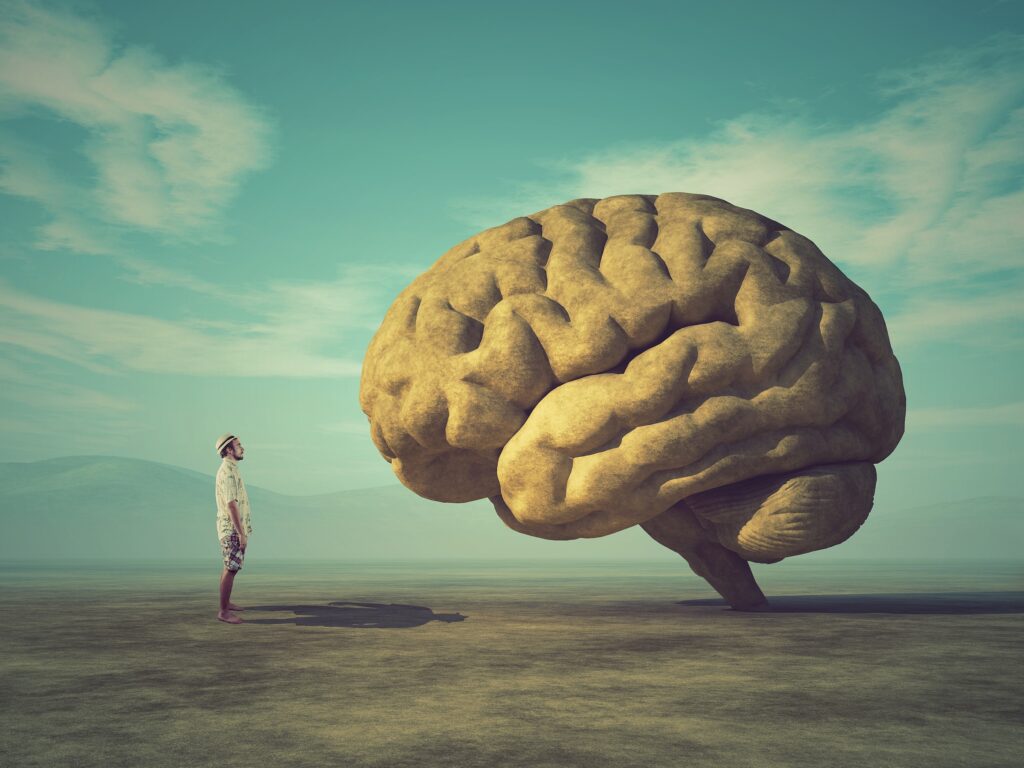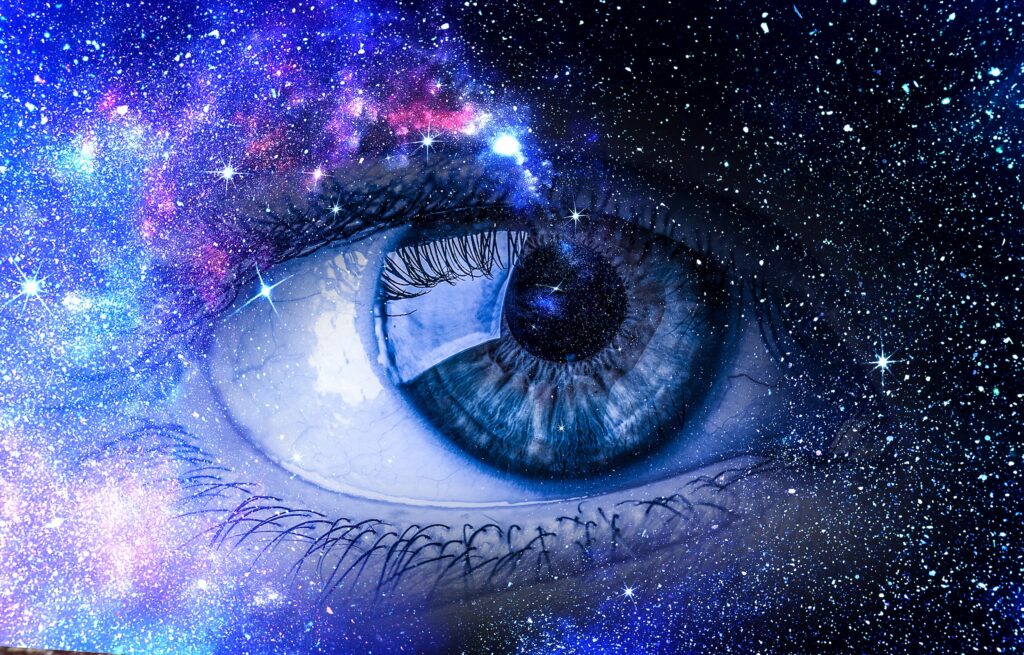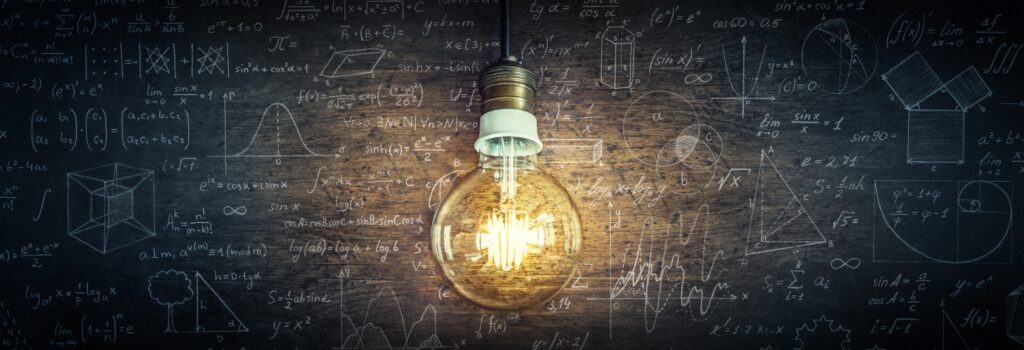Can consciousness understand itself?
Reading | Philosophy
![]() John Hogan, PhD | 2022-02-20
John Hogan, PhD | 2022-02-20

Has human consciousness evolved enough to understand what it is and isn’t? Dr. Hogan warns against a rush to judgment when it comes to answering the big questions of life, self, and reality at large.
The mind/body problem is intrinsically related to the concept of consciousness. The two most common philosophical positions that bound such concept are:
- Consciousness is dependent on the immutable laws of chemistry and physics, which have been subject to the forces of evolution. That is, consciousness has evolved in a similar fashion to the evolution of any of our senses. Any proponent of the New Atheism would exemplify this position, say Richard Dawkins discussing his book, The Blind Watchmaker.
- Consciousness is dependent on a reality separate from the known laws of chemistry and physics. For the purposes of this discussion, we designate this separate reality as C. Consciousness is dependent on C, but C is independent of the laws of chemistry and physics, which have been deduced by our species through logic and measurement. Any leader of a monotheistic religion would exemplify this position, say Pope Francis reciting the Nicaean Creed.
Anyone who addresses consciousness within this spectrum, while accepting the validity of the theory of evolution, is “hoist on their own petard,” to quote Shakespeare. A “petard” is a clump of gun powder with a fuse. In medieval times, it was stuck on the wooden door of a castle and lit to allow entry by the invaders. If the military engineer who had this job didn’t run away fast enough, he was “hoist” into the air. The expression now relates to a self-inflicted unexpected outcome, say the politician who passes a tough campaign finance law only to be convicted under it later.
What is our “petard” under the theory of evolution? According to it, we share a nearest common ancestor with any other living plant or animal. Let’s consider a person and their family dog, as well as the paternal genealogy of both. Roughly 20 million years ago, a specific mammal had multiple offspring. The progeny upon progeny of one of this mammal’s offspring became the person. The progeny upon progeny of another offspring of this mammal from 20 million years ago became the family dog.
There is a sense in which this is our “petard.” To understand why, let’s return to the family dog. It might stare or howl at a full moon, but it does not have the evolved mental capacity to understand Newton’s theory of gravity, much less understand that the moon is a sphere rather than a disc. There are truths that are unknowable to the dog. Much of the knowledge humans know to be true—from algebra to the political history of the western world—is simply unknowable to the family dog. (Let’s be humble, the dog also has knowledge unavailable to the human; for example, the relationship of smell to danger or pleasure.) The dog’s cousin, the person, may believe they have the mental capacity to navigate the pathways to account for consciousness in a manner bounded by positions 1 and 2. But humility is in order.
The person’s conclusion as to what is true will be based on the neuro-chemical reactions that drive logic and emotion. These drives have been forged in their brain by evolutionary selection over the past 20 million years. There is no logical thread that posits that the dog’s mental capacity—formed by the same evolutionary forces—is limited, while the person’s is not. Evolutionary theory allows that descendants of some modern-day humans may be, in another 20 million years, as different from us as we are from the dog. They may know things about evolution and our place in the universe that are as unknowable to us as algebra is unknowable to the family dog. This is not the limitation of logic discovered by Kurt Gödel; it is the biological limit imposed by realizing that evolution is not yet done with our finite brain.
The person need not give up hope while lighting this petard. Evolution is consistent—albeit not inherent or exclusive—with either of the extremes captured by position 1—the atheist position—and position 2—the theist position. Let’s explore this with the understanding of time.
In position 1, consciousness follows biology on earth while in position 2 C precedes biology. Given this formulation, the implications of position 2 for theists are obvious. In the Christian tradition, a loving God starts the whole human experience. However, an atheistic interpretation of position 2 is not only rational under this formulation, but also has an analogy with one of the most important evolutionary events in history: the biological exploitation of water.
Water became essential for life on earth 100 million years ago, via an adaptation made by our sponge ancestors, which exploited water’s chemistry and physics to extract nutrients. The circulation systems of the family dog and the person can be traced to this adaptation and have certainly improved upon it.
Now, the consciousness experienced and amplified by our ancestors over the last 500,000 years may depend on a series of neural adaptations that have exploited the existence of C, much like our circulatory system exploited water. It may take another 10 million years of evolution for substantially evolved descendants of Homo sapiens to understand the mechanisms of this adaptation.
While the assertion that our consciousness is solely dependent on evolution (position 1 above) may be true, it is not provable given the evolutionary status of our brain, and therefore may in fact be false. Likewise, the assertion that our consciousness is derived from a reality separate from the known laws of physics, C, may be true, but it is not provable given the evolutionary status of our brain, and therefore may in fact be false. The only thing provable is that evolution is consistent with this uncertainty and this uncertainty is a hallmark of the human condition.
We should not give up personal responsibility as we lead our conscious lives, make decisions, and ponder the meaning of life. We should recognize the scientific foundation of evolution and willingly express evolutionary thoughts and emotions that drive what we consider to be good outcomes (say, kinship within the family), and constrain evolutionary thoughts and emotions that drive what we consider to be poor outcomes (say, fear of the outsider). However, we should also be open to the possibility of a reality that is greater than what we can observe with our senses. While pondering this greater reality we should be wary of human concocted spiritual dogma.

Essentia Foundation communicates, in an accessible but rigorous manner, the latest results in science and philosophy that point to the mental nature of reality. We are committed to strict, academic-level curation of the material we publish.
Recently published
Reading
Essays
Seeing
Videos
Let us build the future of our culture together
Essentia Foundation is a registered non-profit committed to making its content as accessible as possible. Therefore, we depend on contributions from people like you to continue to do our work. There are many ways to contribute.















